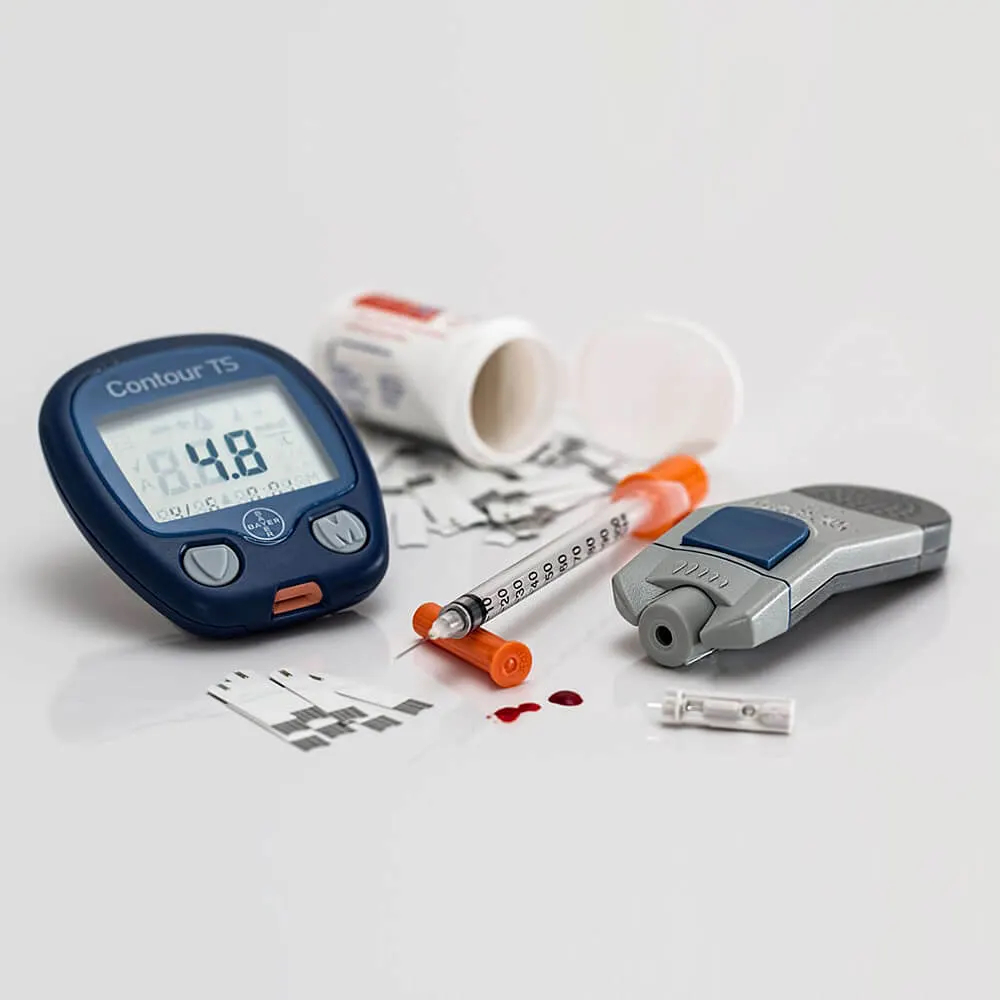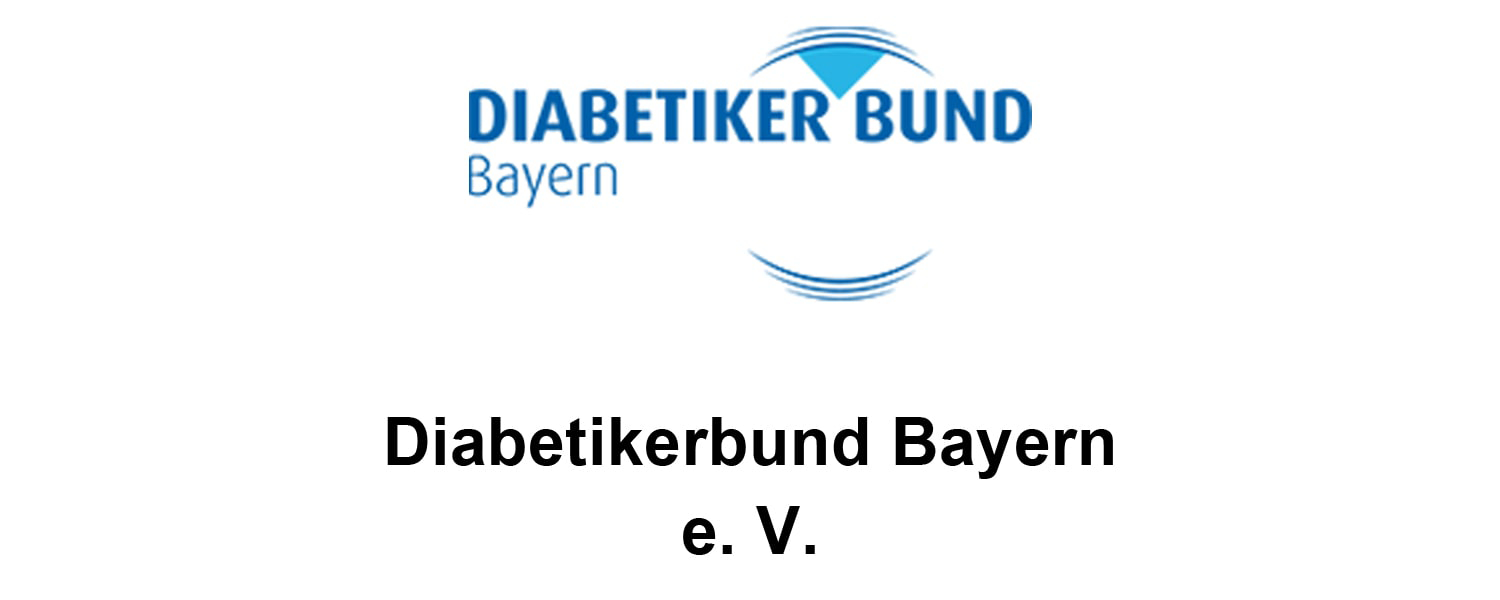What you should know about diabetes
What is diabetes?
Diabetes mellitus is a chronic metabolic disease. It is characterised by a permanently elevated blood sugar level.
It is often referred to as diabetes. Diabetes is divided into type 1 and type 2.
Diabetes mellitus type 1
Since type 1 diabetes usually begins before the age of 20, it is also known as "juvenile diabetes". Type 1 diabetes is triggered by an autoimmune disease. In this case, the immune system attacks the body. The insulin producing cells of the body are destroyed by the pancreas.

Measuring device, insulin syringe and tablets.
Diabetes mellitus type 2
The most common form of diabetes mellitus is type 2, which usually begins after the age of 30 and is therefore nicknamed "adult-onset diabetes".
In some cases, however, young people can also be affected. Triggers for type 2 diabetes include obesity, lack of exercise and hereditary factors.


Diabetes, sugar and insulin injection.
How many people are affected?
Worldwide, it is estimated that about 415 million people between the ages of 20 and 79 suffer from diabetes mellitus.
In Germany, it is assumed that there are about 7.6 million type 2 diabetes patients. This results in a prevalence of about 7-8%.
Since the numbers are expected to rise, one can now speak of a real widespread disease.

Diagnosis, therapy and secondary diseases
Most problematic, however, are the concomitant and secondary diseases of diabetes. These include strokes, heart attacks or diabetic foot.
As a type 2 diabetic, the course of therapy and the disease itself can be influenced well.
However, it is essential to accept the disease and to have sufficient knowledge about it. Take the chance to live a good life even with diabetes and become an expert on your disease!
What is diabetes?
We have compiled the most important information on prevention and treatment of diabetes for you.
On the links below you will find target group-specific independent, understandable and quality-assured information.
Current information, scientific discussions on a broad spectrum of dietetics and diabetes.

 German
German Dutch
Dutch French
French Italian
Italian Portuguese
Portuguese Spanish
Spanish












